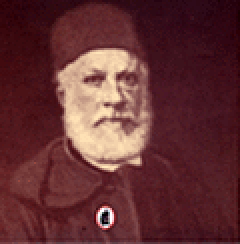|
Matn Al-Lugha
''Matn al-Lugha'' (; "Corpus of the Language") was one of earliest modern monolingual dictionaries of the Arabic language, written by Lebanese linguist Sheikh Ahmed Rida, an important figure of the Arab literary renaissance. The five-volume dictionary is considered as one of the most influential resources in the history of the Arabic language lexicography. References {{Reflist Arabic dictionaries ... [...More Info...] [...Related Items...] OR: [Wikipedia] [Google] [Baidu] |
Ahmad Rida
Sheikh Ahmad Rida (also transliterated as Ahmad Reda) (1872–1953) ( ar, الشيخ أحمد رضا) was a Lebanese linguist, writer and politician. A key figure of the Arab Renaissance (known as al-Nahda), he compiled the modern monolingual Arabic dictionary, '' Matn al-Lugha'', commissioned by the Arab Academy of Damascus in 1930, and is widely considered to be among the foremost scholars of Arab literature and linguistics. Rida was also heavily involved in Arab nationalist politics and has been variously described as "one of the leading reformers in Syria" and among the "key players in the turn-of-the-century stirrings of Arabism, local patriotism, and even defenses of Shi'i particularism". He argued for pan-Arab unity, and was among the first scholars in Jabal Amel to seek to integrate his Shi'ite co-religionists into the greater Arab and Muslim nations while retaining their identity as a religious community. Political activism and social reform Born in Nabatiyeh, he was a ... [...More Info...] [...Related Items...] OR: [Wikipedia] [Google] [Baidu] |
Nahda
The Nahda ( ar, النهضة, translit=an-nahḍa, meaning "the Awakening"), also referred to as the Arab Awakening or Enlightenment, was a cultural movement that flourished in Arabic-speaking regions of the Ottoman Empire, notably in Egypt, Lebanon and Syria, during the second half of the 19th century and the early 20th century. In traditional scholarship, the Nahda is seen as connected to the cultural shock brought on by Napoleon's invasion of Egypt in 1798, and the reformist drive of subsequent rulers such as Muhammad Ali of Egypt. However, more recent scholarship has shown the Nahda's cultural reform program to have been as "autogenetic" as it was Western-inspired, having been linked to the Tanzimat—the period of reform within the Ottoman Empire which brought a constitutional order to Ottoman politics and engendered a new political class—as well as the later Young Turk Revolution, allowing proliferation of the press and other publications and internal changes in politic ... [...More Info...] [...Related Items...] OR: [Wikipedia] [Google] [Baidu] |
